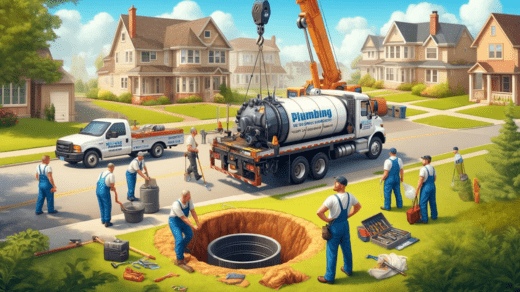
plumber, plumbers, plumbing, septic
When it comes to home maintenance, few things are as crucial as understanding plumbing. From fixing leaks to installing new fixtures, the realm of plumbing encompasses a vast array of tasks. In this guide, we’ll delve deep into the world of plumbers, plumbing, and septic systems, providing you with valuable insights and expert advice every step of the way.
Plumbing Essentials: Getting to Know Your Pipes
Plumbing forms the backbone of any building, ensuring the smooth flow of water and the efficient disposal of waste. Let’s explore the key components that make up a typical plumbing system.
Plumbing Systems Overview: Understanding the Layout From supply lines to drainage pipes, plumbing systems consist of various interconnected components that work together to deliver clean water and remove wastewater from your home.
Common Plumbing Materials: Choosing the Right Pipes Copper, PVC, and PEX are among the most commonly used materials in plumbing. Each material has its own set of advantages and disadvantages, so it’s essential to select the right one for your specific needs.
Preventive Maintenance Tips: Keeping Your Plumbing in Top Shape Regular maintenance is crucial for preventing plumbing issues such as leaks, clogs, and corrosion. Simple tasks like inspecting for leaks and cleaning drains can help you avoid costly repairs down the line.
The Role of Plumbers: Experts in Action
Plumbers play a vital role in ensuring the functionality and safety of plumbing systems. Let’s take a closer look at the services they provide and the skills they bring to the table.
Plumbing Services: From Repairs to Installations Whether you’re dealing with a leaky faucet, a clogged drain, or a malfunctioning water heater, plumbers have the expertise to tackle a wide range of issues. From minor repairs to major installations, they’re equipped to handle it all.
Professional Training and Certification: The Mark of a Qualified Plumber Becoming a plumber requires rigorous training and certification to ensure that professionals have the knowledge and skills needed to perform their jobs safely and effectively.
Emergency Plumbing: Available When You Need It Most Plumbing emergencies can strike at any time, often when you least expect them. Fortunately, many plumbers offer 24/7 emergency services to provide assistance when you need it most.
Septic Systems: Managing Household Waste
For homes not connected to a municipal sewer system, septic systems provide an alternative method of waste disposal. Let’s explore how these systems work and what it takes to maintain them properly.
Understanding Septic Tanks: The Heart of the System Septic tanks are underground chambers that collect and decompose household waste. Regular pumping and maintenance are essential for preventing backups and ensuring the longevity of the system.
Septic System Inspections: Assessing Performance and Functionality Regular inspections are crucial for identifying potential issues with your septic system before they escalate into major problems. From checking for leaks to testing drain field performance, inspections provide valuable insights into the health of your system.
Environmental Considerations: Minimizing Impact and Maximizing Efficiency Proper septic system maintenance is not only essential for protecting your home but also for safeguarding the environment. By following best practices and using eco-friendly products, you can minimize your environmental footprint and promote sustainability.
Conclusion
In conclusion, plumbing is a multifaceted field that encompasses everything from pipe installations to septic system maintenance. By understanding the basics of plumbing and enlisting the help of qualified professionals when needed, you can ensure the continued functionality and efficiency of your home’s plumbing system.







